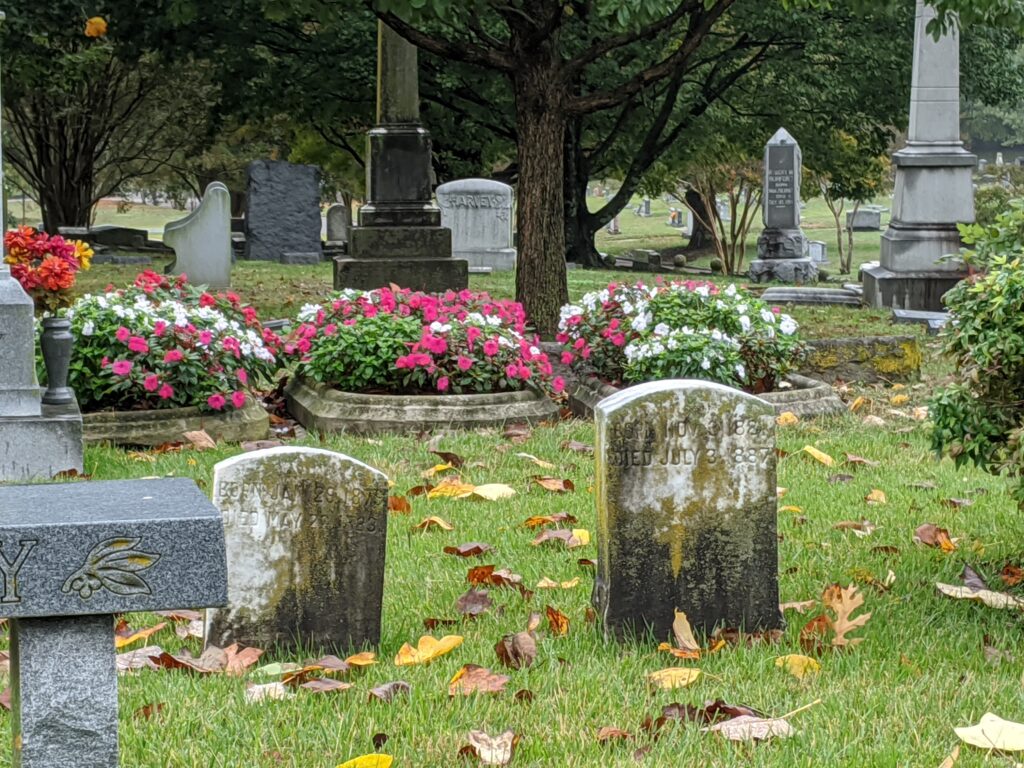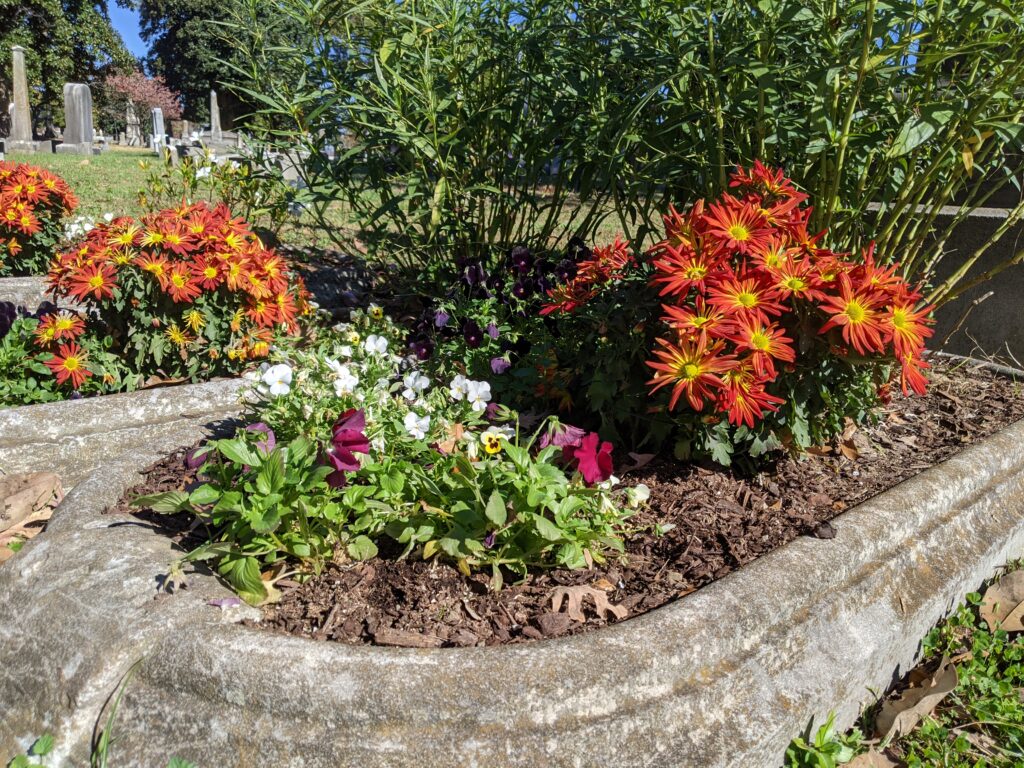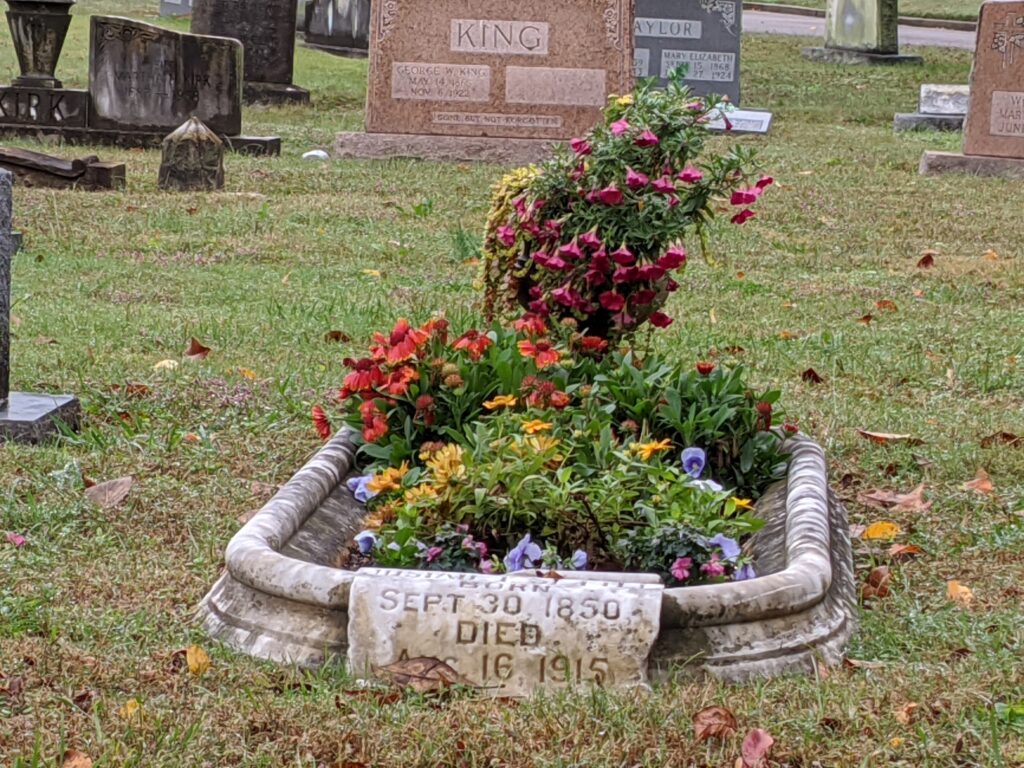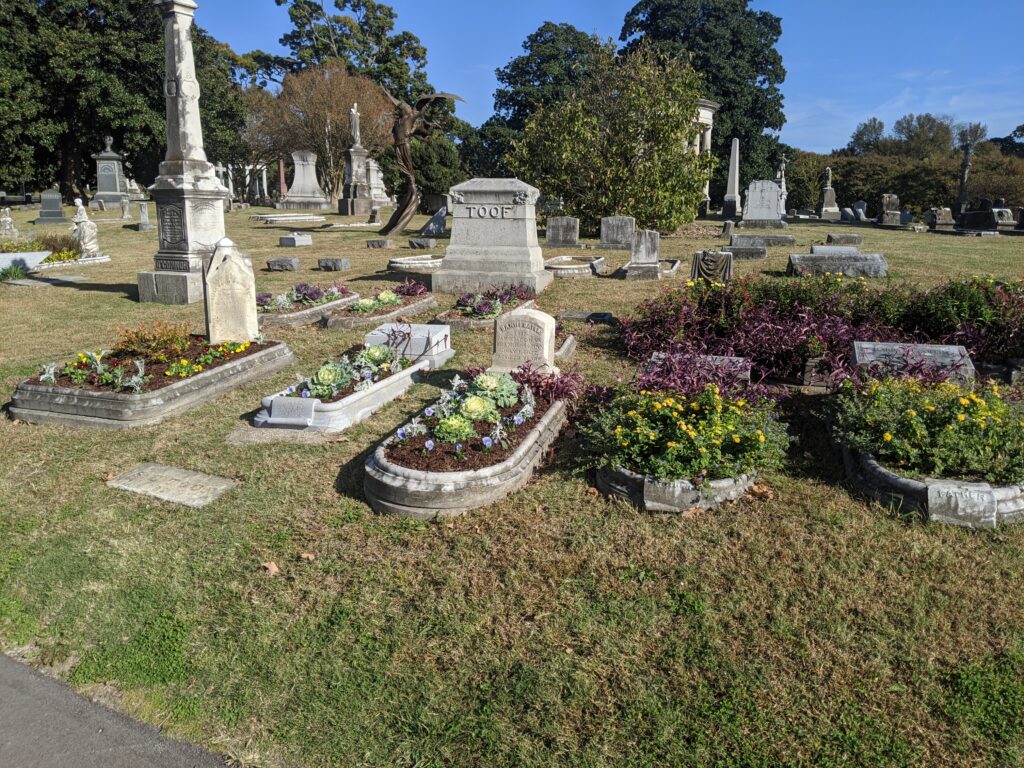by Chris Reeder Young (she/her) | photos courtesy of Elmwood Cemetery
Cultural practices around death, dying, and how we honor our ancestors are varied and expansive. Depending on where you are in the world, people have a range of perceptions about what happens after loved ones pass away and how we interact in those spaces.
Are cemeteries considered hallowed grounds only for the living elite? Is it macabre, creepy, scary, or a place where the living avoids? Is it a joyful place to picnic with family or to visit our lost ones? Could the living honor these spaces with reverences, joys, processed grief, or curation?
During a time when we are being asked to distance ourselves socially from the living, Elmwood Cemetery is continuing a historic and honorable practice that engages the living in a safe and cheerful way that honors those who have passed.
Many Memphians are familiar with Elmwood Cemetery, but the cultural qualities of this space run far and wide (for the living and for those who have passed). Elmwood Cemetery is one of the oldest nonprofits in Tennessee and was founded in 1852 by 50 local businessmen who were inspired by the rural cemetery movement. This cultural movement leaned into the idea that burial spaces could exist in natural and bucolic countrysides paired with gardens and sculptures that blended with the existing dynamic features of more pastoral land. This concept and practice was a major shift from the disengaged, flattened, dreary, and city-proximal vibe of prior burial culture.
Elmwood is charmingly threaded with beautiful carriage trails that provide visitors with views of a level 3 arboretum’s 90+ species of trees. Speckled below the trees are thousands of symbolic memorials that include ornate marble urns, massive bronze statues, stone angels, towering obelisks, intricately engraved crosses, sigils, and military memorials.
Among the rolling hills, trees, birds, chapel, public art, and memorials, visitors will find something unique compared to contemporary thoughts on cemeteries: cradle gardens filled with assortments of beautiful flowers and foliage. Cradle gardens are bassinet- shaped cribs that sit atop grave sites. Kim Bearden, Executive Director of Elmwood since 2005 (on staff since 1998), shared that “symbolically, the Victorians created cradle gardens as a resting place for the children of God, souls waiting among beautiful flowers to be taken to Heaven”.




of those whose families have also passed.
This stunning imagery and practice served as coping outlets for grief and mourning for Victorians who had mourning practices outside of the cemetery. Flowers during this time also had significance and meaning: ivy, roses, day lilies, peonies, rosemary all connecting to human experiences around everlasting love, connectivity, and beauty. Families would come to tend the cradle gardens, generation after generation. Eventually, those individuals passed on or moved away and the cradle gardens went by the way-side.
To bring the cradles back to their Victorian era beginnings, Bearden ran a pilot in 2018 that invited Master Gardeners to translate their expertise into cradle garden curation. Since then, a volunteer program that allows participants to adopt cradles has had overwhelming interest with members of the public and families who have loved ones buried in Elmwood. Bearden remarks that she has had “exceptional engagement and overwhelming generosity” from volunteers. Even with the pandemic, volunteers and their children have contributed in a way that fits with social distancing guidelines and continued a prominent cemetery practice originated during a romantic Victorian era.
Bearden adds that “modern life doesn’t always give us the chance to mourn and celebrate the lives of those lost because of frenetic-paced work and family life. We can’t always give ourselves time to grieve.” For those of us who celebrate ancestors through rituals, tending to cradle gardens in honored spaces can have monumental impacts for the living.
If visitors are interested in volunteering, there are plenty of opportunities. If cradle gardening isn’t your speed, you can donate, clean monuments, help with special events, help with tours, guide a tour, even bequest to Elmwood in your wills.




